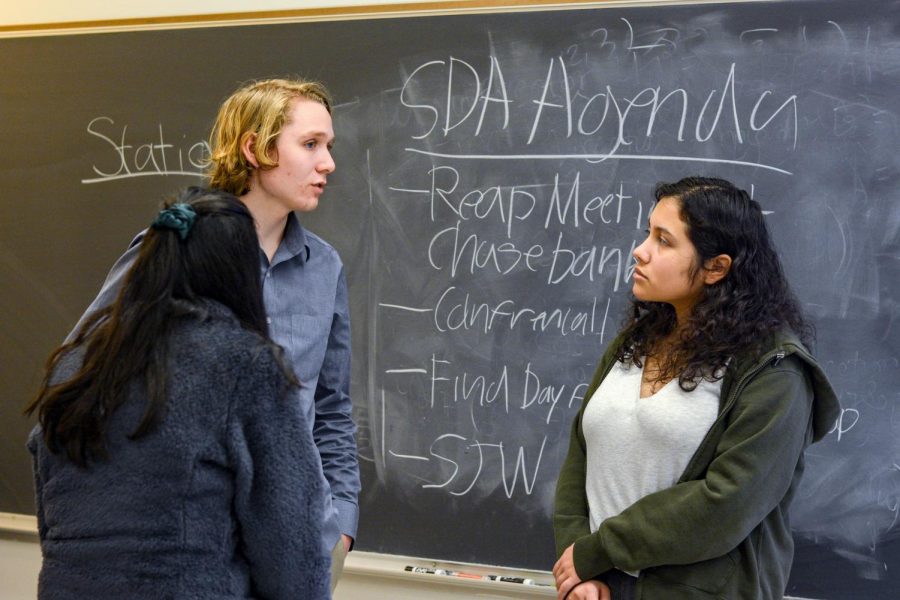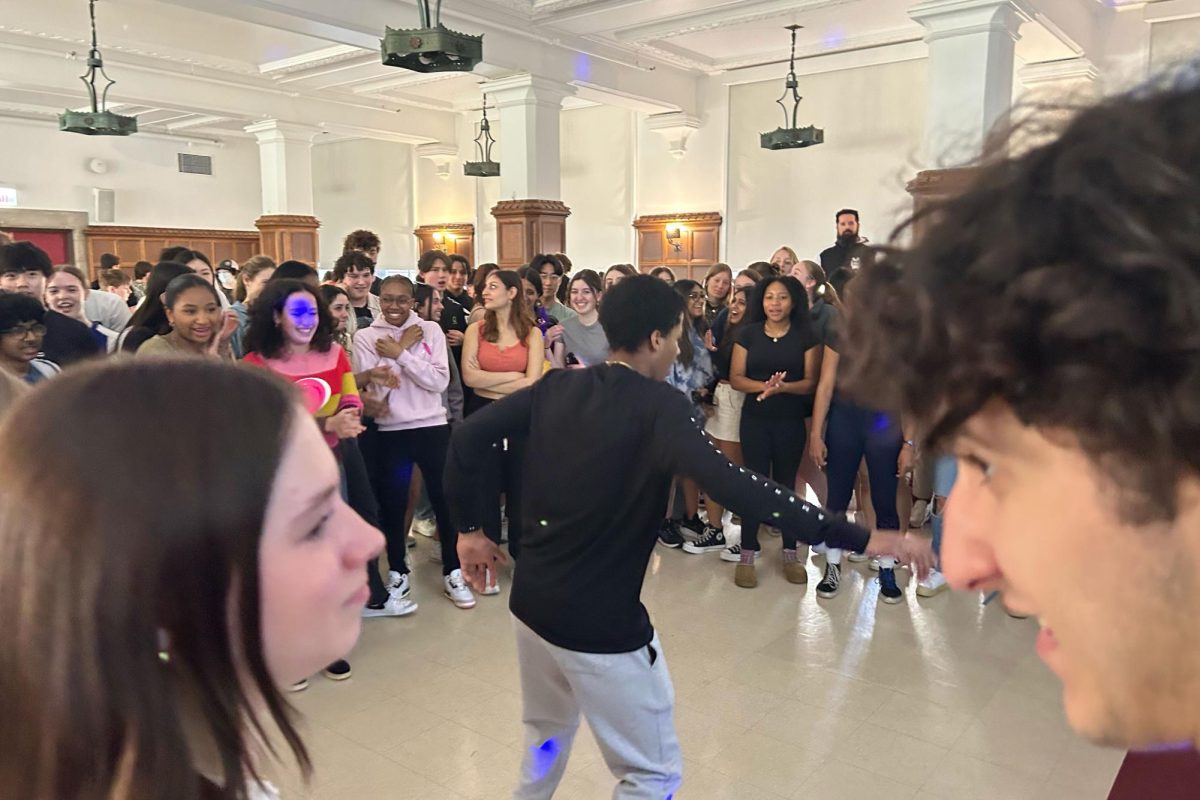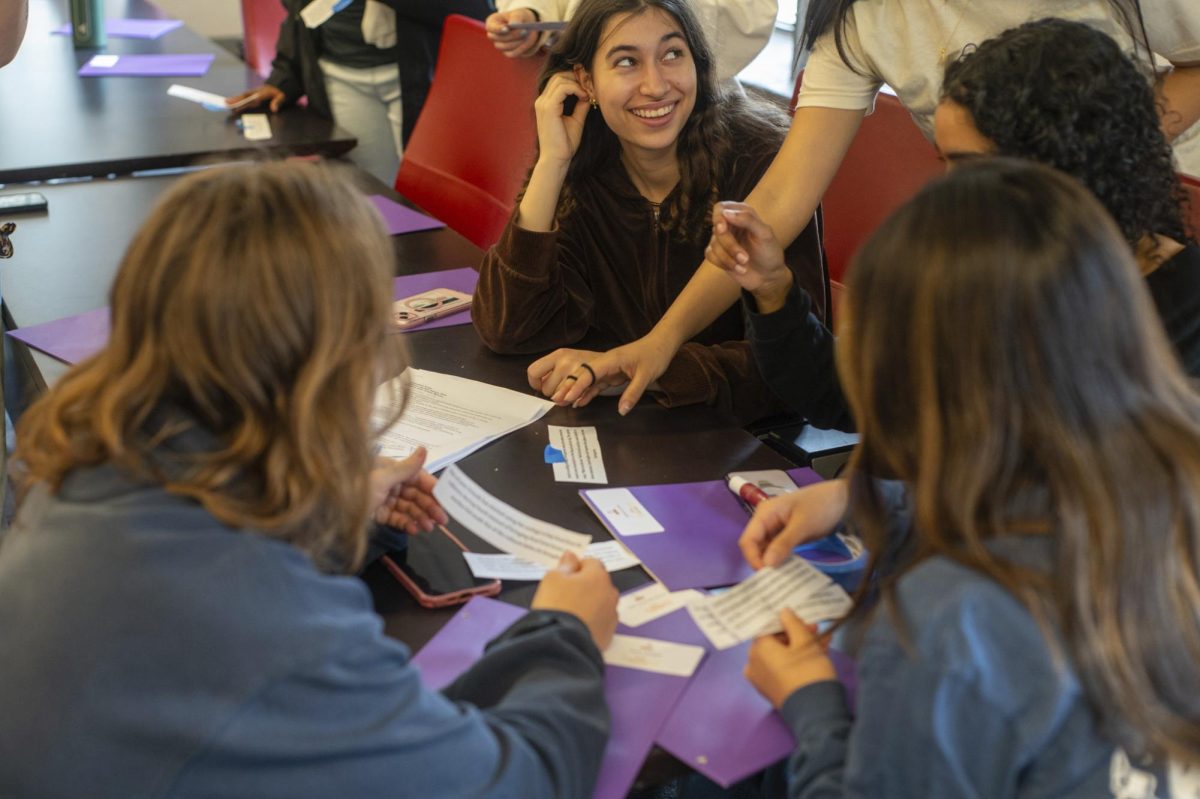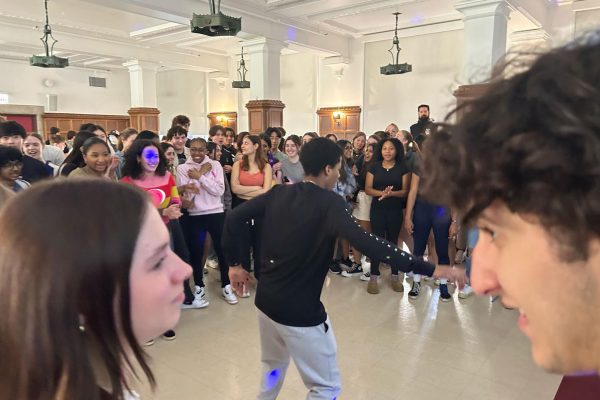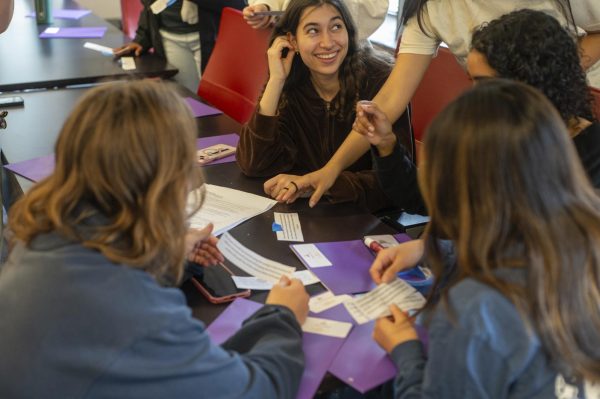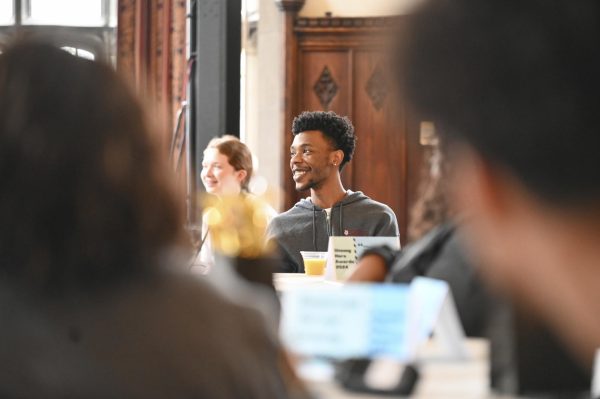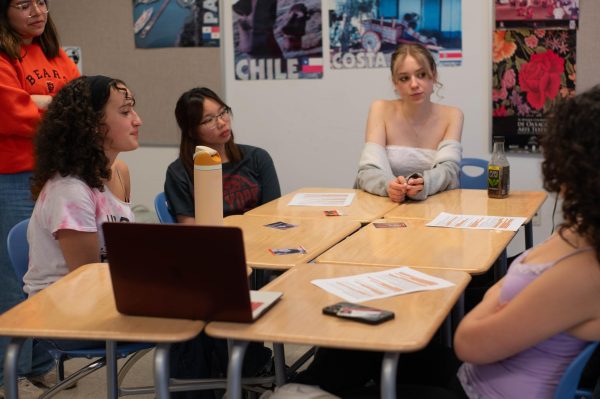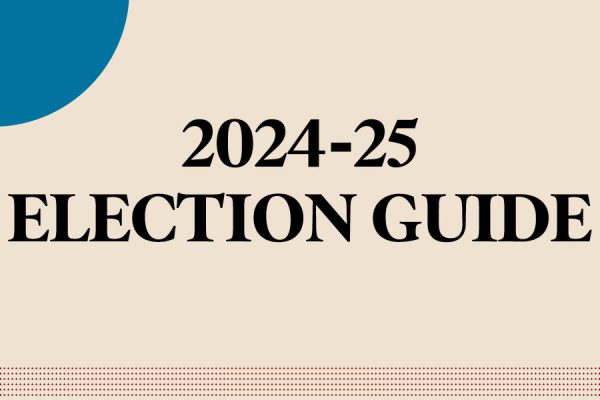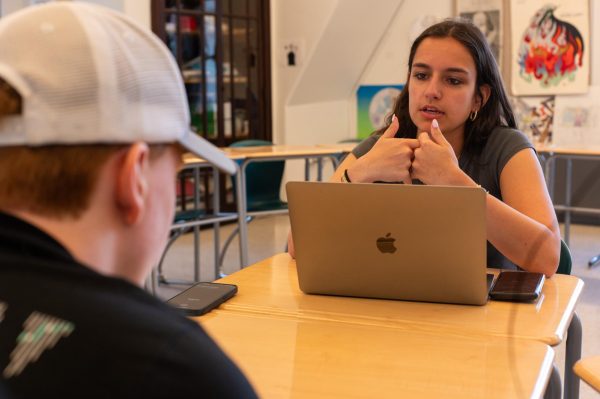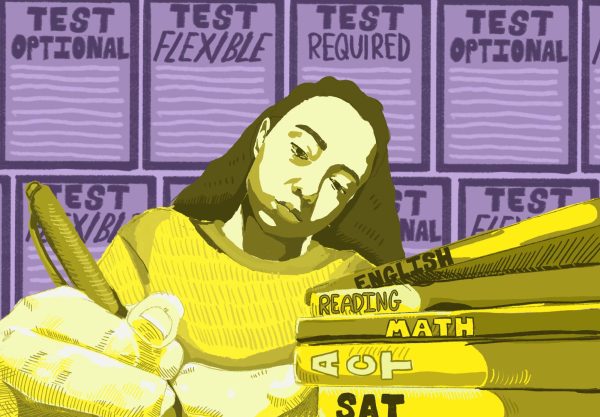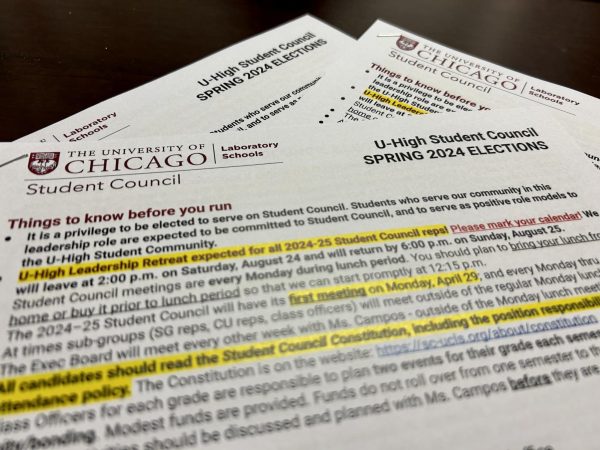Students with Disabilities club leads teacher workshops to support students
Kathy Luan
BUILDING COMMUNITY. Juniors Zach Sharp and Sophia Woodruff have a discussion at one of the workshops, lead by the Students with Disabilities Association at Lab. The workshops aim to illustrate the experiences of certain students and stimulate discussion on how to best help each student.
March 9, 2020
To simulate different disabilities and provide guidance for how adults can support students in and out of the classroom, the Students with Disabilities Association led experiential workshops for faculty, staff and administrators Feb. 6 and continues to work with adults to improve students’ experience.
President Zach Sharp said club members held three workshops simulating disabilities.
“We had one where we visual simulated through a series of goggles,” he said. “We would put on these goggles that put your vision at 20/80, 20/100, 20/200 and we gave them resources — papers, things that you would receive small — so that teachers could see the difficulty of trying to read small print.”
According to Zach, club members also had stations where teachers could learn about dyslexia and auditory processing and simulate the in-class experience of a student with a disability. The goal was for teachers to understand the impact of their actions by experiencing what it is like to have a disability
“It creates a better understanding that leads to people being more cooperative or more on top of things,” Zach said. “If they realize, here are some of the difficulties involved in having a disability, they will be more on top of things.”
According to Learning Coordinator Laura Doto, the fact that the students could speak from personal experience was crucial to the success of the workshop.
It creates a better understanding that leads to people being more cooperative or more on top of things. If they realize, here are some of the difficulties involved in having a disability, they will be more on top of things.
— Zach Sharp
“I think because the students were able to speak from the I perspective and give teachers a true sense of empathy around what it’s like to be challenged by a learning difference every single day in the classroom,” Laura Doto, Learning Coordinator, said, “that first person perspective was huge for the teachers and they responded really nicely.”
According to Zach, a wide range of disabilities means that there is no formula for how to help a student with disabilities in class.
“For me, I like teachers to read everything they put on the board so that I can hear more of it rather than have to use my eyes,” Zach said. “But I know a friend I have with auditory processing likes the exact opposite. They like more things on the board than saying things out loud. So it can vary, and there is a wide variance and some overlap and some don’t.”
The club sent out one email to faculty, staff and administrators and filled all 24 available spots. Due to the interest, Zach said the club will run other similar workshops over the course of the year so their workshop can reach more people.
“There is a lot of demand for this,” Zach said, adding that the club would prepare a presentation for the faculty professional development day in April.
Zach believes that their workshop is important not only for students with disabilities but also to inform teachers.
Zach said, “Many teachers may find it difficult or maybe challenging or even scary to have a student with a disability in their class like, ‘What do I do?’ ‘Am I doing this right?’ ‘Am I educating them the best way possible?’ And this is an easy, very simple way of showing them how they can easily accommodate us.”



